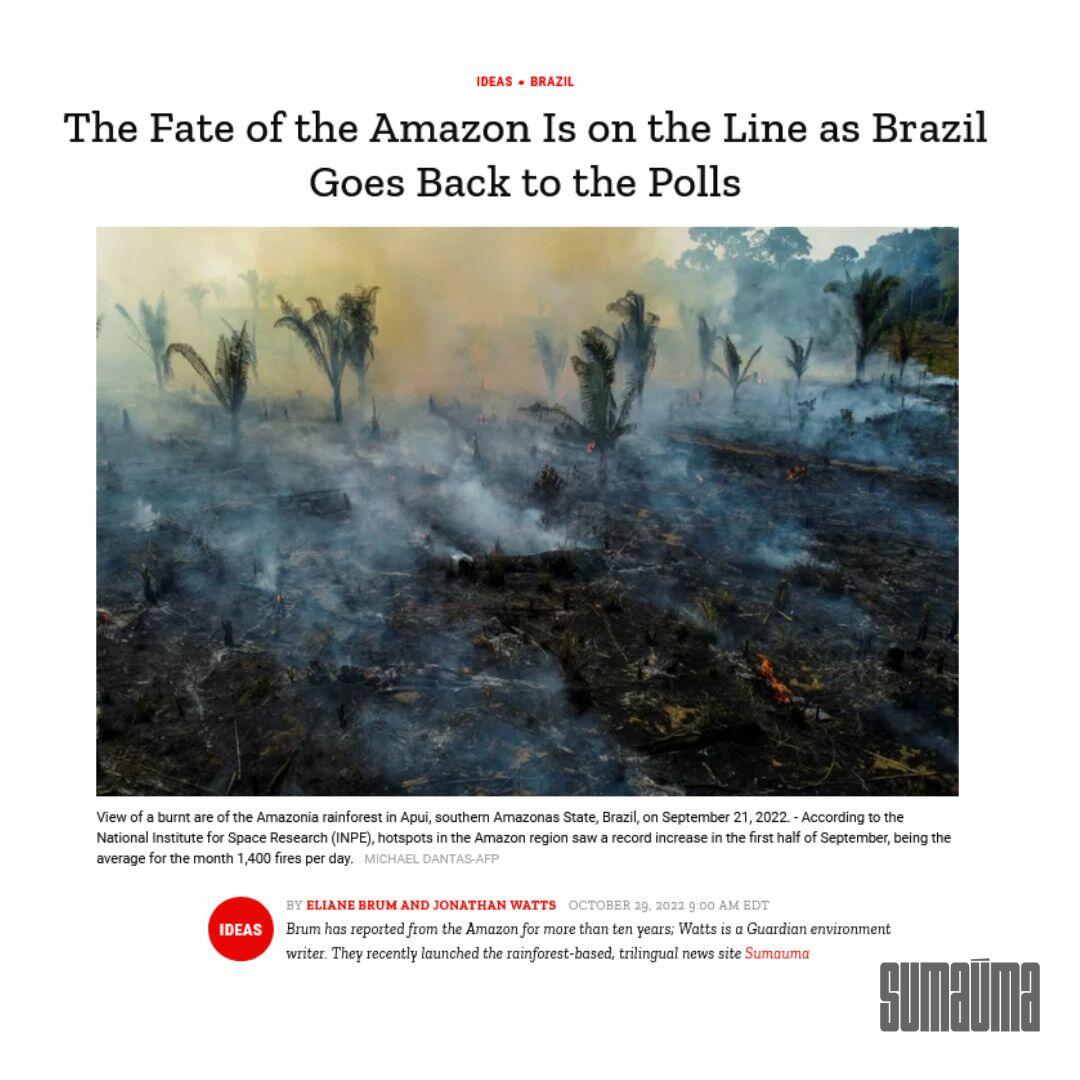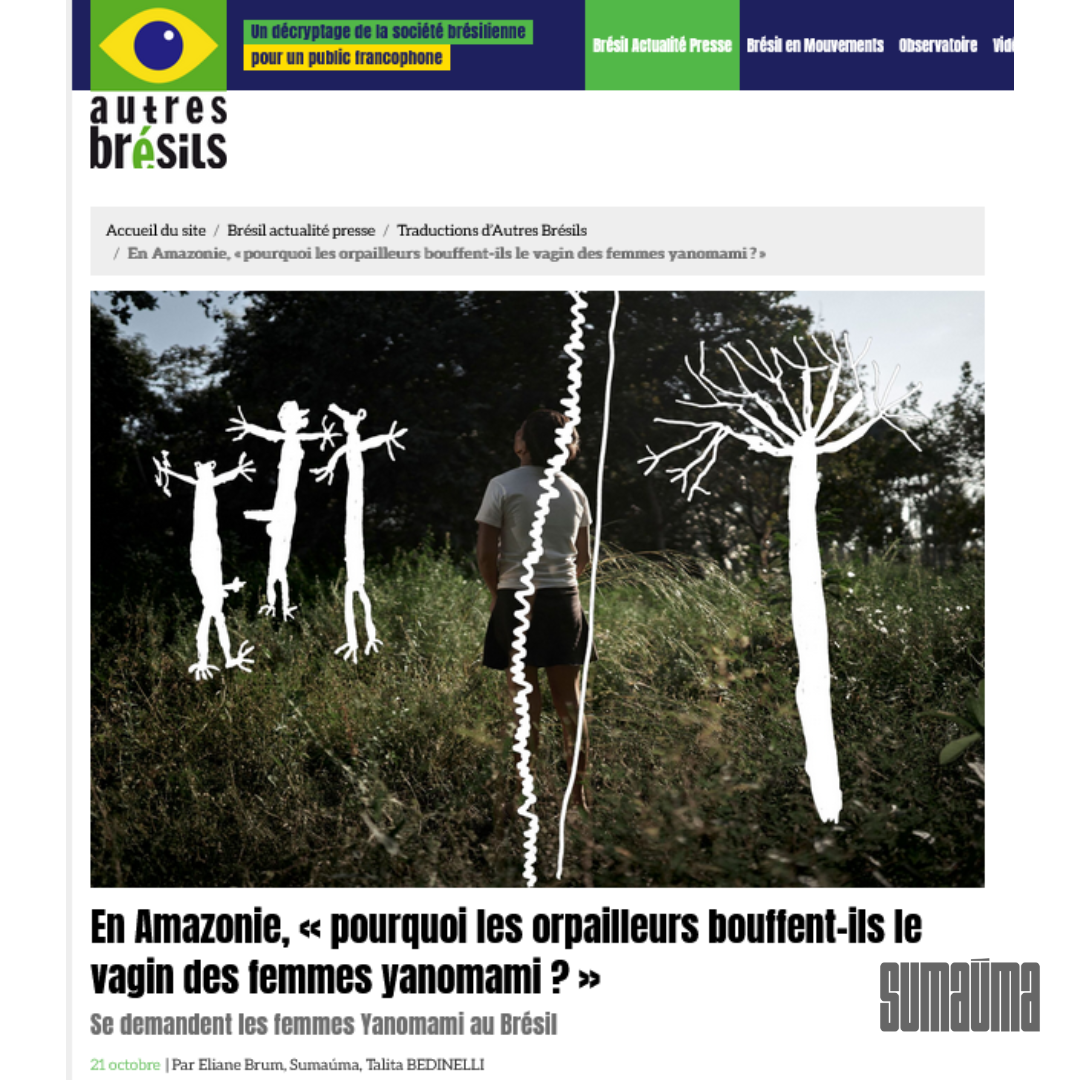Despite being only two months’ old, SUMAÚMA already has lots of good news to share with you, its reader-supporters.
This month, we discovered we were one of 30 initiatives from Latin America to be selected for the third edition of the Google News Initiative Innovation Challenge. The project, created in 2018, helps news organizations put innovative online journalism ideas into practice. We will use the funding to pay for communication equipment and technical support for our “New Narrative Laboratory” project, which will start next year in the communities of the Middle Xingu region. We will select people from the forest (indigenous people, quilombolas (residents of communities originally founded by escaped enslaved peoples), and those from riverine and rural communities), and from the outskirts of urban areas, for a training initiative that will encourage new ways of telling real stories. Once established, the pilot project will be expanded to other regions of the Amazon.
Since we began in September this year, SUMAÚMA has received a great deal of attention in the Brazilian and global press. Statistics from the story “More Than Two Billion Trees Killed In Four Years. The Amazon Legacy Of The ‘President Of Death,” by Jonathan Watts, were used in a global campaign by the environmental NGO Mighty Earth. Our debut story, “Why Do The Miners Screw The Vaginas Of Yanomami Women?”, by Talita Bedinelli, is a finalist of the 4th Jornalismo-Mosca Livre.jor Prize, which is awarded to the best data journalism in Brazil. The winners will be announced at the end of the month.
In October, Time magazine published an article by the SUMAÚMA creators Eliane Brum and Jonathan Watts, about the importance of the Brazilian elections for the Amazon and the planet. In the same month, Brum, creator of SUMAÚMA, was interviewed by Portugal’s Jornal Público, and spoke to Nicolau Ferreira about the evolution of the project and the effects of a second Bolsonaro term for the planet. And at the beginning of November, SUMAÚMA was the subject of an interview with Brum on the CBN radio network, in which she discussed the challenges for the Amazon, and Brazil’s possible role at COP-27.
Our journalism platform also featured in LatAm Journalism Review, a trilingual digital magazine, published by the Knight Center for Journalism in the Americas, at the Moody College of Communication of the University of Texas. The article featured a conversation with Brum, who spoke about how SUMAÚMA intends to amplify the voices of the forest and “recentralize the world”. The Covering Climate Now project of the Columbia Journalism Review, a magazine published by the Columbia University School of Journalism in New York, also recommended some of our content, and, in September, the vice-director of Covering Climate Now, Andrew McCormick, spoke to our founders about the key role of the Amazon in the climate crisis, and about the journalistic coverage of the presidential elections in Brazil. Sumaúma was also a key source in a round-up of Brazilian election news by Tortoise.
Even before our first edition, SUMAÚMA was the subject of an article by Heloisa Villela for ICL News, the journal of the Instituto Conhecimento Liberta (the Liberta Knowledge Institute), and was featured in other Brazilian magazines.
Two weeks ago, SUMAÚMA was the subject of a long feature on the Jornal da Cultura TV show, which told the story of the quilombola Natalha Theofilo, whose open letter SUMAÚMA had published a few days earlier. In it, Natalha describes how she and her husband, the agricultural labor leader Erasmo Theofilo, and their four children had been forced to leave their home after threats from land grabbers and their militias. Titled “I Spent The Election In Exile, Hiding From Assassins”, a video of the actor Denise Fraga reading the quilombola leader’s letter was recorded to give her message even greater reach.
SUMAÚMA was also invited to publish part of its content in French on the website of Autres Brésils, an online journal which brings news and political, social and environmental analysis of Brazil to a francophone audience.
This week, our platform takes a further important step: we will begin our international crowdfunding campaign. Now, readers from all over the world can join our more than 1420 supporters on the Apoia.se platform, so that we can expand our coverage and take our journalism from the center of life even further.
Translated by James Young






